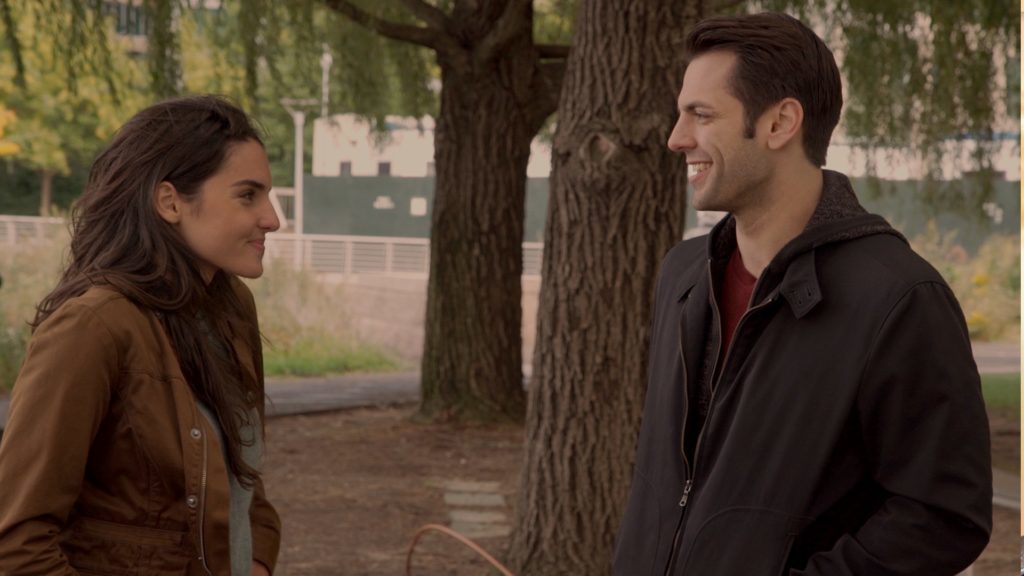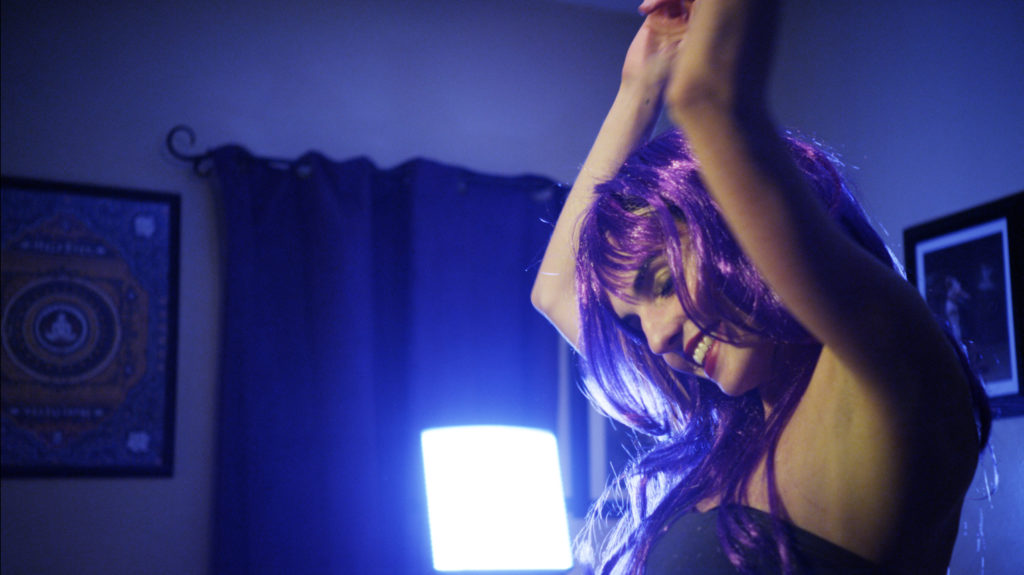“LIVELove,” an independent feature written and directed by Rob Levy is wistful, hopeful, and, at times, frustrating. It’s a love story, it’s a relationship story, and it’s a film about expectations and rediscovering yourself. And while I usually wait until the end to state such things, I really, really enjoyed this movie.
The film stars Matthew Tarricone and Elena Rusconi, as two strangers who meet at a coffee shop across the river from Manhattan. Matthew plays Chris, and from the opening sequence we see he and his girlfriend have just broken up. Collecting himself outside, he meets Liliana. The two strike up a conversation, and quickly develop a friendship, respect, and romance.
Probably the nicest thing about this film is that while the proceedings take place within 2-3 days, and the film is only 63 mins from start to finish, you become instantly lost in the film among Levy’s hopeful, and (to use one of Chris’ words from the film), irrational outlook on love.
The sense of escapism and inclusion this movie offers succeeds due to several factors. First, Rusconi and Tarricone work very well together. This is of course helped by the fact that the script is tight and realistic, and both seem to be terrific actors.
It’s also due to the situations the two find themselves in. The majority of this film is squeezed into not drama or earth-shattering revelations, but in honest discovery and friendship, developed in a way I found believable. This is one of those movies that doesn’t so much paint a complete picture of romance on a canvas, but offers one intangibly, and, with emotions, images, and gentle nudging, invites you into this usually private world.
This is the strong suit of the movie. A conversation the two have after exiting an art museum being one of the scenes I enjoyed the most, as well as another the two have toward the end of the film, that sparks the most emotion. And another scene, as Lilliana admits a vulnerability to Chris as they talk in his kitchen after he returns from work, is the kind of naked beauty that few but independent films excel at.
The scene is additionally scored by a gentle, lovely piano (we learn the original score is composed by Julian Crowhurst), that accents it wonderfully.

To be a bit transparent, I will say that there is a plot mechanism in this film – an admission by Lilliana early on – that adds some drama and tension to the proceedings. And, although this plot is given away on the IMDb description, I will not give it away here. This film is about exploration and acceptance, and her admission could have been anything: a smoking habit, a crazy ex, a bad decision – whatever. The point is that the two work to make sense out of what this means for them, and it does nothing but draw us in to their world that much more.
The cinematography for the film is clear and pleasing. And while the movie takes place amidst the chaos of NYC, I was glad that Levy used the camera to take us into a new New York than we have seen in other movies (in fact it takes several shots of the skyline to place it).
There is no Brooklyn Bridge, or closeups of the Empire State Building. The film is full of lovely shots that make the city Lilliana’s and Chris’.
One of the best is a bar scene toward the film’s end that is filmed against a multitude of orange lights in an otherwise dark bar, or another that shows the city streets from outside Chris’ apartment in a psychedelic fashion reminiscent of Tokyo in “Lost in Translation.” By keeping much of the film focused on Lilliana and Chris, and their thing, it becomes that much more encapsulating.
This is a good movie. Its slow pace makes its one-hour feel like two, and that’s a compliment. The film never drags, is insightful, and is also very soulful. Rusconi makes Lilliana a stunningly beautiful person, and Tarricone plays the part of an everyman with good intentions well.
The film is reminiscent of the sense of discovery and ultimate pain offered in David Gordon Green’s remarkable “All the Real Girls,” while also channeling the toned-down meet/cute offered in Zach Braff’s “Garden State.” And – again giving no spoilers – the film manages a conclusion that thankfully defied my expectations, when other filmmakers often mistakenly believe that melancholy is needed to drive points home. It’s not…and Levy clearly understands this.
I turned on the lights after “LIVELove” ended and felt that I had really lived Lilliana and Chris’ story. It’s hard to find fault with that.
– by Mark Ziobro


